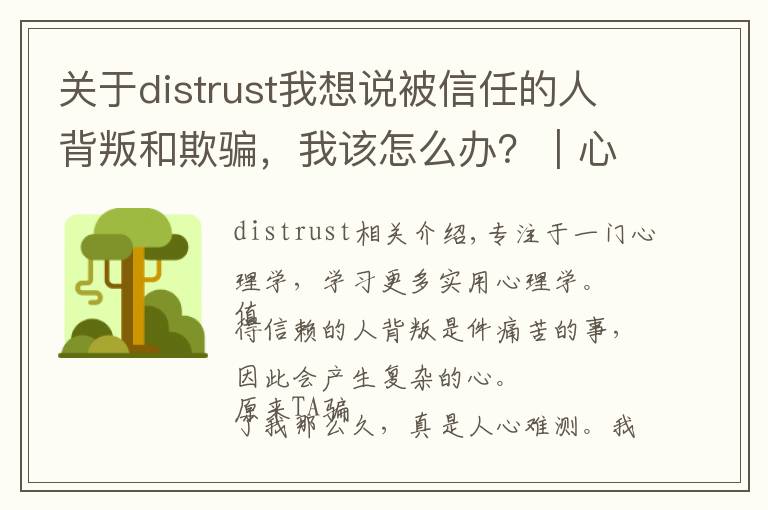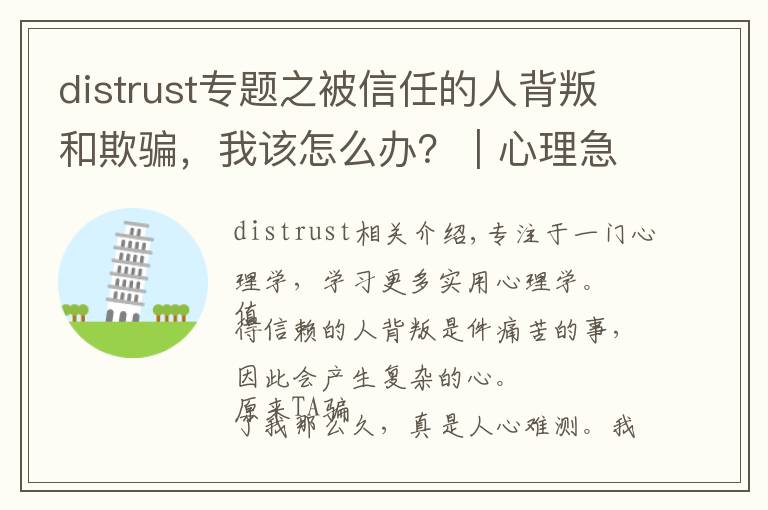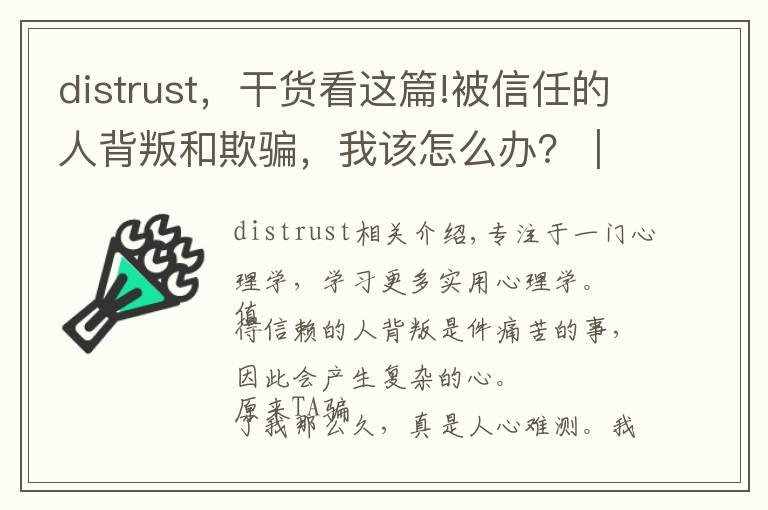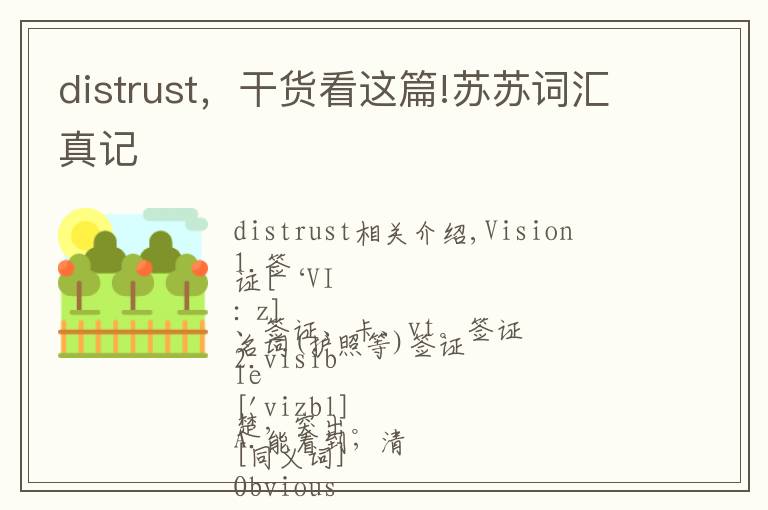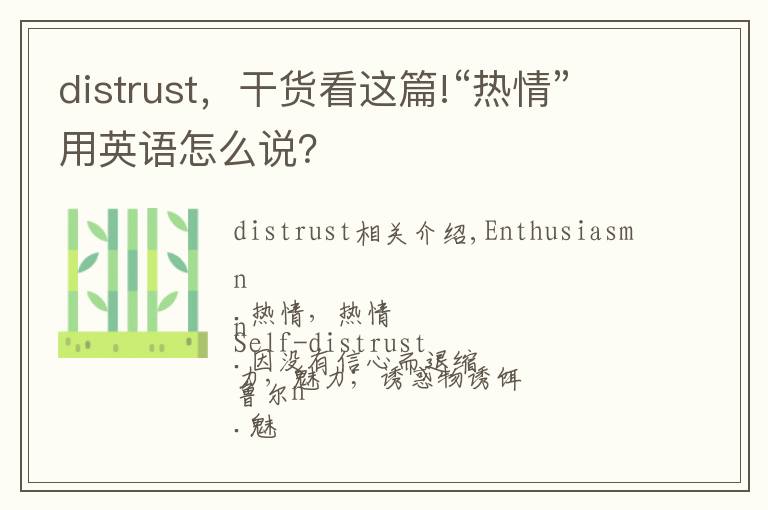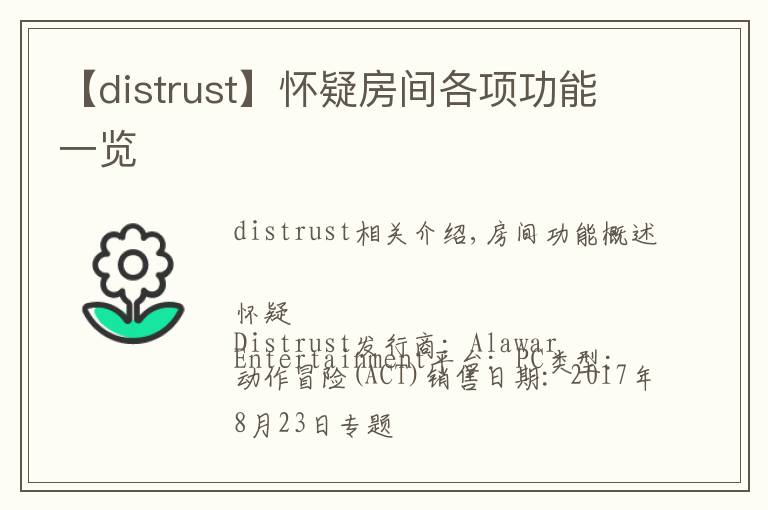The children made a lot of noise in the classroom. 孩子们在教室里大声吵闹。
Try not to make a noise when you go upstairs; the baby is asleep. 上楼时不要发出声音,孩子在睡觉。
2. make (a) noise about sth 抱怨某事。如:
Don’t make a noise about trifles. 不要为小事抱怨。
He made a lot of noise about the food. 他大大地抱怨食物不好。
none
1. have none of sth
(1) 没有一点。如:
He has none of his father’s talent. 他一点没有他父亲那样的才气。
(2) 不参与,不接受,不同意。如:
He was offered a job but he said he would have none of it. 他被人提供一份工作,但他说他不会接受。
Father said he would have none of my arguing. 父亲说他不准我争辩。
I’ll have none of your stupid ideas!我才不会同意(接受)你那愚蠢的想法呢!
2. none but 仅仅,只有。如:
None but the best is good enough for her. 只有最好的才配得上她。
3. none of
(1) 没有一个(一点)。如;
None of the food was left. 没剩一点食物。
He likes none of these books. 这些书他一本也不喜欢。
Luckily, none of them was [were] killed in the accident. 幸亏在那次事故中他们中没有一个人丧命。
注:none of 后接名词时,名词前须有限定词。如:
误:None of children came.
正:None of the children came. 孩子们一个也没有来。
(2) 不许,不准,不得(用于祈使句)。如:
None of that! 不许那样!
None of your interruption. 不要插嘴。
4. none other (than) 正是,就是。如:
It’s none other than my old friend Bill. 那原来是我的老朋友比尔。
A:Can it really be Bill? 那真是比尔吗?
B;None than. 不是他,还有谁?
5. none the 毫不,决不(后接比较级)。如:
My car is none the worse for the accident. 我的车并不因为出了这次事故而有所损坏。
6. none too [so] 不很,毫不(后接形容词或副词)。如:
He’s none so fond of her. 他并不十分喜欢她。
The salary they pay me is none too high. 他们付给我的薪水一点也不高。
noon
1. at noon 在中午,在正午。如:
The workers had lunch at noon. 工人们中午12点吃午饭。
He left here at noon. 他中午12点离开了这里。
2. before noon 午前。如:
Snow fell before noon. 午前降了雪。
He rarely gets up before noon. 他很少在午前起床。
normal
1. above [below] normal 在标准以上(以下)。如:
Her temperature is above (below) normal. 她的体温高于(低于)正常标准。
Rainfall has been above (below) normal this July. 今年七月份的雨量高于(低于)正常标准。
2. It’s normal for sb to do sth 做某事对某人来说是正常的。如:
It’s normal for us not to want to work on Sunday. 我们星期日不想工作是正常的。
It’s normal for her to stay indoors in such cold weather. 在那样寒冷的天气里她呆在家里,这是很正常的。
3. return [be back] to normal 恢复正常。如:
Things will soon return to normal. 情况即将恢复正常。
Train services are back to normal again after the strike.
罢工后火车营运又恢复正常。
note
1. a note to [on] sth 对……的注释。如:
Here’s a note to [on] this word. 这是该词的一条注释。
Now let’s look at the notes to [on] the text. 现在我们来看看课文注释。
2. make a note of sth 记下某事。如:
Make a note of how much money you spend. 你花多少钱要作个记录。
I made a note of her address and phone number. 我记下了她的地址和电话号码。
注:有时也说 take a note of sth, 但不如本句型常见。
3. take notes of 记下,对……作好笔记。如:
Do you take notes of the lecture? 你听课记笔记吗?
He sat taking notes of everything that was said. 他坐在那里把所说的事都记录了下来。
注:有时也说 make notes of sth, 但不如用本句型常见。
4. take note of 注意。如:
Please take note of what I say. 请注意我说的话。
Nobody took any note of the death of the old man. 没有谁注意到这位老人死了。
nothing
1. be nothing to……
(1) 对……来说无所谓。如:
All this is nothing to me. 我对这一切都无所谓。
A: What is she to you? 她在你心目中如何?
B:She is nothing to me. 我对他无所谓。
(2) 不能与……相比。如:
Our losses are nothing to his. 我们的损失不能与他的损失相比。
2. for nothing
(1) 不要钱,免费。如:
Children under five can travel for nothing. 五岁以下的小孩可以免付旅费。
(2) 徒然,没有结果。如:
All my trouble went for nothing. 我白白辛苦了一场。
注:口语中说 Thank you for nothing. 意为“不用你操心”,主要用于表示拒绝或轻蔑。
3. nothing but 仅仅,只。如:
He dreams of nothing but going home. 他只想回家。
There is nothing but some waste paper in the desk. 课桌里只有些废纸。
4. nothing like
(1) 没有比……更好。如:
There’s nothing like a cup of tea when you are thirsty. 你口渴时,没有比喝上一杯茶更好的了。
(2) 远远不像,丝毫不像。如 :
It looks nothing like a horse. 这完全看不出像马。
It’s nothing like it was yesterday. 这远远不像昨天那样。
)
5. (have) nothing to do with 与……无关(联系)。如:
What he says is [has] nothing to do with me. 他说的与我与关。
The book has nothing to do with our lessons. 这本书我们的功课无关。
6. to say nothing of 除了……,更不用说。如:
It’s a well-paid job, to say nothing of the short hours. 这工作除了工作时间短不说外,而且报酬也高。
notice
1. notice sb (sth) do (doing) sth 注意某人(某事)做某事。如:
Did you notice her leave [leaving] the house? 她离开屋子你注意到了吗?
She noticed the man look [looking] at her a couple of times. 她注意到那个男人朝她看了好几次。
注:以上各句中若用不定式,不带 to, 但若不定式为完成式,通常应带 to。如:
I noticed her to have come early. 我注意到她来得很早。
2. at short notice 在短时间内,接到通知的短时间内。如:
Can you be ready at short notice? 你能在短时间内准备好吗?
He had to leave at short leave. 他接到通知后得马上离开。
类似地:
They are ready to go at a moment’s notice. 他们已作好准备,说走就走。
He left at only ten days’ notice. 他仅提前10天通知离去。
3. take notice of sth (sb) 注意某事(某人)。如:
I warned him, but he took no notice of it. 我警告过他,但不听。
Such things will always be taken notice of. 那样的事总是很引人注目。
4. until further notice 在另行通知以前。如:
The shop is closed until further notice. 本店现已歇业,开业时间另行通知。
now
2. by now 到现在。如:
He left two hours ago and he should be there by now. 他是两小时前离开的,到现在应该已经到那里了。
He should have arrived by now. 到现在他应该已经到了。
2. now and then 时而,有时,偶尔。如:
He appears on TV now and then. 他不时在电视上出现。
Now and then we heard shots in the woods. 我们时而听到树林里有枪声。
注:该短语也可说成 now and again, every now and then, every now and again。
3. now that 既然,由于。如:
Now that you’re well again. you can travel. 既然你身体好了,你现在可以旅行了。
Now that you mention it, I do remember the incident. 经你一提,我想起那事了。
注:其中的 that 通常可以省略。如:
Now (that) John’s arrived, we can begin. 既然约翰到了,我们可以开始了。
number
1. a number of 若干,许多。如:
A number of books are missing from the library. 图书馆丢了一些书。
Only a small number of people have applied for the job. 只有少数人申请这份工作。
注:其后应接复数可数名词,若用作主语其谓语要用复数形式。
2. the number of……的数量。
The number of girls in their school is small. 他们学校女生人数很少。
The number of people who own TVs today is increasing every year. 现在拥有电视机的人数在每年增多。
注:其后应接复数名词,但若用作主语,其谓语却只能用单数。
3. in number 数量上,总共。如:
They were ten in number. 他们总共10人。
The students who study English have increased in number. 学习英语的学生在数量上增加了。
4. in numbers 大量地,很多。如:
Visitors came in (great) numbers. 参观者蜂拥而来。
Elephants are here in (large) numbers. 这里大象很多。
O
object
1. no object 毫无困难,不成问题。如:
I will pay anything; money is no object. 我愿出任何代价,钱不是问题。
1. object to (doing) sth 反对或讨厌(做)某事。如:
I object to a wet summer. 我讨厌多雨的夏季。
My parents objected to my marrying her. 我父母反对我与她结婚。
He objected to being treated like a child. 他反对被当作小孩子看待。
注:该结构中的 to 是介词,不是不定式符号,所以其后接动词时应用动名词而不能用动词原形。
oblige
1. be obliged to sb for sth 为某人而感激某人。如:
I’m obliged to you for your good opinion. 感谢你的宝贵意见。
I shall be much obliged to you for an early answer. 尽早赐复,不胜感激。
2. oblige sb to do sth 被迫某人做某事”。如:
The police obliged them to leave. 警察迫使他们离开。
The law obliged parents to send their children to school.
法律要求父母送子女上学。
3. oblige sb by doing sth通过做某事为某人效劳(帮忙)。如:
Could you oblige me by posting the letter? 劳驾请帮我把这封信寄了好吗?
Please oblige me by keeping quiet during the lecture. 演讲期间请保持安静。
4. oblige sb with sth 用某事物为某人效劳(帮忙)。如:
She obliged us with a song. 她为我们唱了首歌。
Could you oblige me with 10 dollars? 借给我10美元好吗?
occur
1. occur to 想到,想起。如:
A good idea occurred to me. 我想起了个好主意。
His name just did not occur to my memory. 我就是想不起他的名字。
2. it occurred to sb 想到,记起。如:
Didn’t it occur to you to phone them about it? 难道你就没有想到给他们打个电话?
Just as I was leaving the house, it occurred to me that I had forgotten my keys. 我正要离开房间,我想起来忘了带钥匙。
offer
1. offer sb sth / offer sth to sb (主动)为某人提供某物。如:
Offer the guests some coffee. / Offer some coffee to the guests. 给客人们来点咖啡。
He offered me a better position. / He offered a better position to me. 他给我提供了一个更好的职位。
2. offer to do sth (主动)愿意做某事,表示要做某事。如:
He offered to help us. 他主动提出帮助我们。
He offered to lend me some money. 他表示可借给我一些钱。
3. offer (sb) some money for sth (给某人)出价多少买某物。如:
He offered (me) 1000 dollars for the old paint. 他(向我)出1000美元买这幅旧画。
4. offer (sb) sth for some money 开价多少把某物卖出(给某人)。如:
We offered him the house for $30000. 那房子我们向他索价三万美元。
He offered (me) the computer for 500 dollars. 他开价500美元卖那部电脑(给我)。
office
1. go to the office 去办公室,去上班。如:
You didn’t go to the office today? 你今天没去办公?
I don’t have to go to the office on Sundays. 星期日我不必去办公室上班。
注:有时其中的冠词可以省略,但这在现代英语已很少见。
2. in (out of) office 当(不当)权,执(不执)政。如:
Our party has been in (out of) office for three years. 我们党执政(下野)三年了。
3. leave office 离职。如:
He left office last year. 他去年离职。
He decided to leave office. 他决定离职。
4. take office 就职,上任。如:
When did he take office? 他什么时候上任的?
He took office at a difficult time. 他上任于困难时刻。
often
1. as often as
(1) 与……一样多次。如:
He came as often as he could. 他尽可能常来。
(2) 每当,每次。如:
As often as I tried to ring him, the line was engaged. 每次我给他打电话都占线。
2. as often as not 通常,常常。如:
As often as not, he forgets his homework. 他常常忘做家庭作业。
During foggy weather, the trains are late more often than not. 雾天火车往往误点。
注:也可说成 more often than not。
3. quite [very] often 经常。如:
It rains here quite often. / It quite often rains here. 这里经常下雨。
Very often he goes to the cinema. / He goes to the cinema very often. 我们经常去看电影。
once
1. all at once 突然。如:
All at once he rushed out. 他突然冲了出去。
All at once we heard a loud noise. 突然我们听到声巨响。
2. at once
(1) 立即,马上。如:
You must do it at once. 你必须马上做它。
(2) 同时,一起。如:
Don’t all speak at once. 不要一起说。
Everything happened at once. 所有的事都一起发生了。
(3) 既……又……(与 and 连用)。如:
He is at once a teacher and a poet. 他既是老师又是诗人。
The book is at once interesting and instructive. 这本书既有趣,又有教益。
3. (just) for once 就一次,破例一次。如:
He beat me for noce. 他只赢过我一次。
He came to us for once. 他只来看过我们一次。
4. more than once 不止一次。如:
I’ve seen the film more than once. 这部电影我不止看过一次。
5. once again [more] 再一次。如:
Let me hear you sing it once again. 让我听你再唱一次。
I’ll tell you how to do it once more. 我再告诉你一次如何做此事。
oneself
1. be oneself
(1) 是某人自己。如:
The poor boy was myself. 那个可怜的孩子就是我自己。
The ones who really want it are ourselves. 真正想要它的是我们自己。
(2) 身体(精神)处于正常状态。如:
I’m not quite myself these days. 我近来身体不大舒服。
I’ll be myself again in no time. 我过一会儿就会好的。
注:有时用于除 be 以外的其他连系动词后。如:
You don’t seem yourself today. 你今天看上去似乎不大舒服。
2. by oneself 独自,独立,自动。如:
She did it (all) by herself. 这是她独立做的。
The machine runs by itself. 这机器自动运转。
3. to oneself 独自享用。如:
I want a bedroom to myself. 我想一个人要一间卧室。
only
1. if only 要是……就好了,但愿。
If only she would come. 要是她能来就好了。
If only I was rich. 要是我很有钱就好了。
If only I hadn’t told him about it. 要是我没有告诉他这事就好了。
2. only too 很,非常,完全。如:
He was only too pleased to help. 他非常愿意帮忙。
It’s only too true. 这是千真万确的。
operate
1. operate on 给……做手术。如:
She will have to have her eyes operated on. 她的眼睛不得不做手术。
The doctor decided to operate on him (his nose) at once. 医生决定马上给他(他的鼻子)动手术。
opinion
1. in one’s opinion 根据某人的意见。如:
In my opinion, he is wrong. 据我看,他是错了。
In my opinion, he is too lazy. 照我看,他太懒了。
注:也可说成 if you want my opinion。
2. have a good (high, bad, low) opinion of 对……评价高(低)。如:
I have a good (bad) opinion of him. 我对他评价很高(低)。
He has a low opinion of the picture. 他认为这幅画不行。
He has a high opinion of himself. 他自命不凡。
opposite
1. opposite to 在……对面。如:
The direction opposite to north is south. 北的反方向是南。
The children sat opposite to me during the meal. 吃饭时孩子们坐我对面。
注:有时介词 to 可以省略。如:
He smiled and sat down opposite (to) her. 他笑了笑,就在她对面坐了下来。
order
1. in order
(1) 按顺序。如:
These numbers are in order. 这些数字是按顺序排列的。
Line up and walk to the door in order. 排好队并依次走到门那儿去。
比较:in order of size 按大小顺序
(2) 整齐,井然有序,有秩序。如:
Put your books in order. 把你的放整齐。
Some teachers find it difficult to keep their classes inorder. 有的教师发现课堂秩序很难维持。
(3) 处于良好状态。如:
We soon put his bike in order. 我们很快就修好了他的自行车。
2. in order to 为了……(后接动词原形)。如 :
We used the computer to save time. 我们用电脑节约时间。
He came in quietly in order not to wake his wife. 他轻轻进来,以免把他妻子吵醒。
注:若不定式主语与句子主语不一致,则用 in oder for sbto do sth。如:
We work hard in order for our son to go to college. 我们
努力工作是为了让儿子上大学。
3. in order that 为了……(后接句子)。如:
He studied hard in order that he could pass the exam. 他努力学习,是为了能通过考试。
In order that he should not be late, his mother woke himat 6. 为了让他不让迟到,他母亲六点就叫醒了他。
注:该结构有时可与 in order to 转换。如:
He’s working hard in order to pass the examination. / He’sworking hard in order that he can pass the examination.
为了考试及格,他正在努力学习。
4. order sb to do sth 命令(吩咐)某人做某事。如:
The doctor ordered me to stay in bed. 医生吩咐我卧床。
The general ordered the soldiers to attack. 将军命令士兵进攻。
注:此时也可后接从句(通常用虚拟语气)。比较:
He ordered her to start the work at once. / He ordered the work to be started at once. / He ordered that the work(should) be started at once. 他命令(她)马上开始工作。
5. order sb sth / order sth for sb 为某人订购……。如:
I’ve ordered you egg and chips. / I’ve ordered egg and chips for you. 我为你鸡蛋和炸土豆。
He ordered himself a new suit. / He ordered a new suit for himself. 他为自己订购了一套西装。
5. order sth from……向……定购某物。如
I’ve ordered a new carpet from the shop. 我向商店订购了一块新地毯。
We ordered 500 pairs of shoes from the factory. 我们向这家工厂定购了500双鞋。
6. place an order for sth with……向……定购某物。如:
We placed an order for 50 computers with the shop. 我们向这家商店订了50台电脑。
They have placed an order with the Boeing Company for 30 new middle-size airlines. 他们向波音公司订购了30架中型新客机。
ordinary
1. in the ordinary way 按常例地,就通常情况而言。如:
In the ordinary way he would like to come with us, but he is not feeling well. 在通常情况下他都会同我们一起来,只是他现在身体不太好。
2. out of the ordinary 不平常的,非凡的。如:
This was nothing out of the ordinary. 那很平常。
Such a long delay is out of the ordinary. 耽搁这样长时间是少有的。
out
1. be out
(1) 出去,不在家(指人)。如:
How long will she be out? 她要出去多久?
The manager is out at the moment. 经理现在不在。
(2) 出来,出去(指物)。如:
I’m afraid the secret is out. 恐怕秘密泄露了。
His new book is just out. 他的新著刚刚出版。
(3) 熄灭。如:
The fire (candle, gas) is out. 火(蜡烛,煤气)熄了。
(4) 结束。如:
I’ll come back before the month is out. 我将在这个月底前回来。
(5) 出错,弄错。如:
He was out in his figuring. 他在计算上出了差错。
You are out on the matter. 在这个问题上你弄错了。
(6) 开花。如:
The flowers are out. 花开了。
The roses are all out. 玫瑰花全都开了。
(7) 不可能。如:
I’m sorry, but that’s completely out. 很遗憾,那根本办不到。
(8) 过时。如:
Long shirts are out this year. 今年长裙不再流行。
That sort of dress is out these days. 那种服装现在不时兴了。
2. out of
(1) 从……里面(出来),从……当中。如:
He helped the old man out of the bus. 他帮助老大爷下公共汽车。
I don’t get great pleasure out of it. 我没有从这里面得到很大的乐趣。
(2) 离开,脱离。如:
Fish can’t live out of water. 鱼离开水就不能活。
The patient is not yet out of danger. 病人尚未脱离危险。
I don’t feel like going to the party, but I’m not surehow I can get out of it. 我不想参加这次晚会,但不知如何摆脱它。
(3) 缺乏,用完,没有。如:
We are out of sugar (money). 我们的糖(钱)用完了。
My car was out of gasoline. 我车上的汽油耗尽了。
He was soon out of patience. 很快他就失去了耐心。
(4) 出于,由于。如:
I said this out of kindness. 我说这话是出于好意。
He helped her out of pity. 他出于怜悯而帮助她。
I smoke only out of habit. 我抽烟只是出于习惯。
(5) 丧失,放弃。如:
He cheated the old woman out of her money. 他骗了这个老太婆的钱。
The policeman talked the man out of jumping from the top of the building. 警察说服了那男子不要从屋顶上跳下来。
(6) 用……(制成)。如:
What did you make it out of? 这个你是用什么做的?
We can make many things out of bamboo. 我们可以用竹子做成许多东西。
over
1. all over 全身,到处。如:
I ached all over. 我全身都痛。
He was wet all over. 他全身都湿透了。
We have looked all over for it. 我们到处都找过它了。
注:all over 有时为 over(结束)的加强说法。如:
I’m glad it’s all over. 我很高兴,这事已全部结束了。
2. over and over (again) 一再地,反复地。如:
She kissed the baby over and over. 她一再地亲这个婴儿。
He read the letter over and over again. 他反复读着这封信。
3. over here 在这边,到这边。如:
Let’s sit over here by this window. 我们就坐在这儿的窗户边吧。
4. over there 在那边,到那边。如:
Your bike is over there. 你的自行车在那边。
The children are playing over there. 孩子们在那边玩。
owe
1. owe sb sth / owe sth to sb
(1) 欠某人某物。如:
He owes me 100 dollars. / He owes 100 dollars to me. 他欠我100美元。
(2) 感谢某人。如:
We owe our parents a great deal. / We owe a great deal to our parents. 我们应大大感谢我们的父母。
(3) 给予某人某物。如:
I owe you my best thanks. 我非常非常感谢你。
We owe you a return visit. 我们应该对你进行回访。
I owe him a letter. 我应该给他写封信。
注:有时也可借助介词 to 改写双宾语,但不如接双宾语普通。如:
I owe an apology to him. / I owe him an apology. 我应该向他道歉。
(4) 把某事归功于某人。如:
I owe my life to you. 全亏你我才能活下来。
He owes his success to hard work. 他把他的成功归因于勤奋工作。
She owes her good health to her regular life. 她把她的健康归功于她有规律的生活。
注:有时也用双宾语句型(但不如以上结构普通)。如:
I owe my success to him. / I owe him my success. 我的成功要归功于他。
P
pair
1. a pair of 一双,一对,一条,一副。如:
She bought a pair of shoes. 她买了一双鞋。
I need another pair of glasses. 我还要一副眼镜。
2. in pairs 一对一对地, 两个两个地。如:
The children came in in pairs. 孩子们两个两个地进来。
The students practise English conversation in pairs. 学生们两个两个地练习英语会话。
pains
1. be at pains to do sth 费心(努力)做某事。如:
He is at pains to find facts. 他努力了解事实真相。
She was at pains to make sure that we all understood. 她尽了最大努力使我们每个人都弄懂。
2. take pains to do sth 费心(努力)做某事。如
He has taken pains to study the problem. 他费尽了心血研究这个问题。(d21)
Great pains have been taken to do it. 干这事费了不少心。
注:有时用 take pains in doing sth。如:
I took great pains to keep [in keeping] her house clean.
我费了不少心来保持房子整洁。
3. take pains over [with] sth 费心(努力)做某事。如
He takes great pains over his work. 他工作兢兢业业。
He is a good teacher and takes great pains with his pupils. 他是位好教师,尽心尽力教育学生。
Pardon
1. I beg your pardon.
(1) 对不起(表示道歉或提出异议等)。如:
I beg your pardon, I meant the green one. 对不起,我指的是那个绿色的。
I beg your pardon, I never said that at all. 对不起,我从未那样说过。
注:由于不小心碰了某人、推了某人、踩了某人的脚等,也可用此表示道歉。
(2) 对不起我没听清,请再说一遍。如:
A:Where’s the post office, please? 请问邮局在什么地方?
B:I beg your pardon? 请问,你说什么?
A:I asked where the post office is. 我问邮局在什么地方。
注:有时只说 Beg your pardon, Beg pardon, Pardon 等。
(3) 打扰一下,请问。如:
I beg your pardon, can you tell me the way to the station? 对不起,你能告诉我去车站怎么走吗?
I beg your pardon, may I disturb you a minute? 对不起, 可以打扰你一会儿吗?
2. pardon sb (sth) 原谅某人(某事)。如:
He asked her to pardon him (his rudeness). 他请求她原谅他(他的无礼)。
We must pardon him his little faults. 我们必须原谅他的小过失。
3. pardon sb (for) doing sth / pardon sb’s doing sth 原谅某人做某事。如:
Pardon my interrupting you. / Pardon me (for) interrupting you. 请原谅我打断你的话。
Pardon me (for) asking / Pardon my asking, but isn’t that my hat you’re wearing? 对不起冒昧问一下,你戴的是不是我的帽子?
part
1. (a) part of 一部分,一小部分。如:
Only (a) part of the story is true. 这个故事只有部分情节是真实的。
Part of the pupils are interested in it. 部分学生对此感兴趣。
注:复数形式用 parts of(有些部分)。如:
Parts of the book are interesting. 这本书有些部分有趣。
2. for one’s part 就个人来说,至于本人。如:
I for my part still distrust you. 就我来说,仍不信任你。
For my part, I don’t mind where we eat. 对我来说,到哪里吃我无所谓。
3. for the most part 多半,通常,总的说来。如:
The students are, for the most part, from villages. 这些学生多半来自农村。
For the most part, he is a good student. 总的说来,他是个好学生。
4. in part 部分地,在某种程度上。如:
He failed in part because of his carelessness. 他之所以失败,部分是由于他粗心大意。
His success was due in part to luck. 他的成功部分是因为运气好。
5. in parts 有些部分。如:
The story is quite well written in parts. 这个故事有些部分写得很好。
6. take part (in sth) 参加(某事)。如:
He took part in many school activities. 他参加学校的许多活动。
How many countries will take part (in the World Cup)? 有多少国家参加(世界杯)?
particular
1. be particular about [over]非常讲究,难以满足,吹毛求痴。如:
She’s very particular about her clothes [what she wears]. 她对穿着很讲究。
He’s too particular over what he eats and drinks. 他对吃喝太挑剔。
2. in particular 特别,尤其。如:
Why did you choose that one in particular? 你为什么特别挑选了那一个?
I noticed her eyes in particular, because they were very large. 我特别注意到了她的眼睛,因为她的眼睛很大。
pass
1. pass sb sth / pass sth to sb 把某物递给某人。如:
Please pass me the salt. / Please pass the salt to me. 请把盐递给我。
2. pass by
(1) (时间)过去。如:
Thirty years has passed by since he left there. 自从他离开那儿,已过去30年了。
注:在美国英语中通常用 pass away, 在口语中可用 go by。
(2) 从旁边经过或路过。如:
I saw her pass by just now. 我刚刚看到她走过去。
Every day I pass by your office building. 我每天经过你的办公大楼。
注:口语中可用 go by。
(3) 不注意,不理会,忽略,遗漏,躲开。如:
He tried to pass the problem by. 他想要避开这个问题。
I can’t pass by the remark in silence. 我对此话不能置之不理。
3. pass for 被(错误地)当作。如:
She could pass for a much younger woman. 她看上去比实际年龄轻得多。
Many a coward passes for a hero. 许多胆小鬼被人们当作是英雄。
4. pass on
(1) 向前移动。如:
Let’s now pass on to the next subject. 我们进行下一个问题的讨论吧。
(2) 传递。如:
Pass the book on to me when you’ve finished with it. 那本书你看完给我。
I passed her message on to his mother. 我把她的口信带给了他母亲。
past
1. in the past 过去,以前。如:
In the past I have lived here. 过去我一直住在这里。
In the past people thought that the sun turned round theearth. 过去人们认为太阳是绕着地球转。
2. go past (时间)过去。如:
Weeks went past without any news of them. 几个星期过去了但没有他一点消息。
注:也可说成 go by。如:
A whole year went past [by] before we saw them again. 我们再次见到他时,整整一年过去了。
patience
1. have no patience with 对不能忍耐,受不了。如:
He has no patience with his nosy neighbors. 他不能容忍他那些爱管事的邻居。
2. lose (one’s) patience (with sth) 失去(对某物的)耐心。如:
I’ve lost (my) patience with him. 我已无法容忍他。
If you don’t stop making that noise I’m going to lose my patience. 你如果再吵闹,我可要发脾气了。
3. have the patience to do sth 有做某事的耐心。如:
I wouldn’t have the patience to sit sewing all day. 我没有耐心整天缝衣服。
He didn’t have the patience to stay here so long. 他没有耐心在这里呆那么久。
patient
1. be patient with sb 对某人有耐心。如:
We must be patient with children. 我们对孩子要有耐心。
You’ll have to be patient with my mother--she’s going rather deaf. 你对我母亲得有耐心---她的耳朵越来越背了。
2. be patient of sth 对某事有忍耐力。如:
They are patient of hardships. 他们能吃苦耐劳。
You should be patient of criticism. 你应该能容忍批评。
3. be patient (enough) to do sth 有耐心做某事。如:
He was patient (enough) to wait for her for five hours. 他很有耐心,等了她5个小时。
pay
1. pay back
(1) 偿还(借款)。如:
Have I paid (you) back the $10 you lend me? 我借你的那10美元还你没有?
(2) 报复。如:
I’ll pay you back for what you did to me. 你对我做的那些事我要进行报复。
2. pay for
(1) 为……而付钱。如:
I paid three yuan for the book. 我花了3元钱买这本书。
(2) 为……而付出代价。如:
John paid dearly for his mistake. 约翰为自己的错误付出了很大的代价。
3. pay off
(1) 还清(债务等)。如:
She expects to pay all her debts off shortly. 她预计不久就能还清全部欠债。
(2) 获得成功。如:
Our plan certainly paid off; it was a great idea. 我们的计划肯定已获得成功,那是个了不起的主意。
peace
1. at peace
(1) 处于和平状态。如:
Thus Europe was at peace for the first time in ten years. 于是欧洲出现了10年来的首次和平局面。
(2) 处于平静状诚。如:
He is never at peace with himself. 他老是安静不下来。
All was at peace in the dead of the night. 深夜里万籁俱寂。
2. in peace 安静地,平静地,平安地。如:
Let me do my work in peace. 让我安静地工作。
You’d better leave him in peace. 你最好别去打扰他。
He lives in peace with his neighbors. 他与邻居和睦相处。
3. keep the peace 维护社会治安(秩序)。如:
We should all keep the peace. 我们都应该维护社会秩序。
Several policemen went there to keep the peace. 有几个警察去了那儿维持秩序。
4. make peace (with) (与……)讲和。如:
The leaders of the two countries decided to make peace. 这两国领导人决定议和。
注:有时用 make one’s peace with sb(与某人言归于好)。如:
Have you made your peace with your wife yet? 你同你妻子言归于好了吗?
permit
1. permit (one’s) doing sth 允许(某人)做某事。如:
We do not permit smoking here. 不准在此吸烟。
I have too much to do to permit my going on holiday. 我要做的事太多,无法去度假。
2. permit sb (sth) to do sth 允许某人(某事)做某事。如:
Permit me to explain. 请让我解释一下。
We can’t permit this to happen. 我们不允许此事发生。
比较:
The policeman permitted him to park there. / The policeman permitted his parking there. 警察允许他在那停车。
3. permit sb sth 允许某人某事物。如:
The doctor has permitted him only two meals a day. 医生只允许他每天吃两餐。
4. permit of 容许,容忍。如:
The situation permits of no delay. 局势刻不容缓。
注:有时其中的介词 of 可以省略。如 :
The facts permit (of) no other explanation. 这些事实不容许有别的解释。
5. time (weather) permitting 如果时间(天气)允许的话。如:
Time permitting, we’ll come and see you. 如果时间允许,我们就来看你。
The party will be held in the garden, weather permitting. 如果天气允许的话晚会将在花园里举行
person
1. in person
(1) 亲自。如:
He will come in person. 他将亲自来。
(2) 外貌上,身体上。如:
He was tall and strong in person. 他长得又高又壮。
2. in the person of sb 正是某人,就是某人。如:
Help arrived in the person of his father. 前来帮忙的正是他父亲。
persuade
1. persuade sb to do sth / persuade sb into doing sth 说服某人做某事。如:
He persuaded his wife to change her mind. 他说服他妻子改变了主意。
How can we persuade him into joining us? 我们怎样才能说服他参加我们的活动呢?
He persuaded Mary to marry him. / He persuaded Mary into marrying him. 他说服玛丽嫁给他。
注:persuade 表示“劝服”,若表示 “劝而不服或劝说不一定成功”,应用 try [want] to persuade 或 advise。如:
They tried to persuade him to stay, but he just wouldn’t listen. 他们劝他留下,可他不听。
2. persuade sb of sth 使某人相信某事。如:
I could not persuade him of my honesty. 我无法使他相信我是诚实的。
She wasn’t persuaded of the truth of his statement. 她不相信他说的话是真的。
photo
1. a photo of sb 某人的照片。如:
This is a photo of Mr Smith. 这是史密斯先生的照片。
He showed a phote of his girlfriend. 他给我看了他女朋友的照片。
注:a photo of sb 指的是照有某人自己的归片。比较:
This is a photo of Mr Smith’s. 这是史密斯先生所收藏的一张照片。(照的不是 Mr Smith)
2. have a (one’s) photo taken 请人(让人,被人)拍照(照相)。如:
I’ll have a photo taken. 我要请人拍个照。
He doesn’t like to have his photo taken. 他不喜欢(让人)拍照。
3. take a photo 拍照,照相。如:
Let’s take a photo of the building. 我们给这座建筑物拍个照吧。
I took a lot of photos during my holiday. 我在度假期间拍了许多照片。
内容规划:待满足“圈子功能与专栏功能”时,图说英语原创图文与短视频陆续对外开放。每一步前进,都离不开大家的转发与支持,欢迎大家,一起解锁更多精彩英语学习内容!
智学英文:短视频+图说英语
习得路径:拼读+跟读+阅读
图说新概念+七日练音标/拼读/单词/语法
- 仅供免费学习使用,如涉及版权,请联系予以删除。
- 也希望每位伙伴尊重每一个作品背后的付出,如果使用,请注明出处!
- 欢迎各位关注,点赞,转发与评论!感谢每一次的“赞赏”!
始终坚信:优质的分享是一种“美”!让我们一起发现美,创作美,分享美!
1.《【distrust】英语词块:短语与句型一览无余之十八》援引自互联网,旨在传递更多网络信息知识,仅代表作者本人观点,与本网站无关,侵删请联系页脚下方联系方式。
2.《【distrust】英语词块:短语与句型一览无余之十八》仅供读者参考,本网站未对该内容进行证实,对其原创性、真实性、完整性、及时性不作任何保证。
3.文章转载时请保留本站内容来源地址,https://www.lu-xu.com/gl/2080282.html

